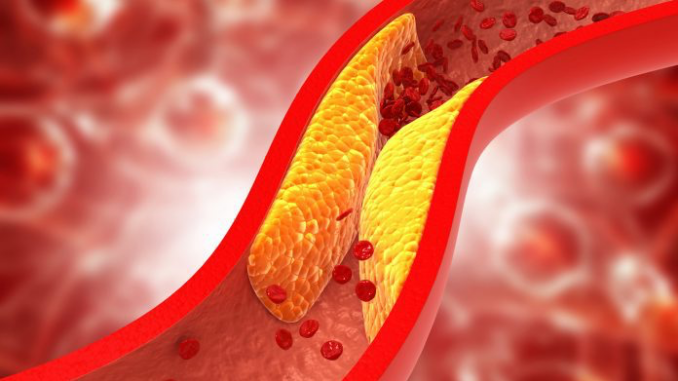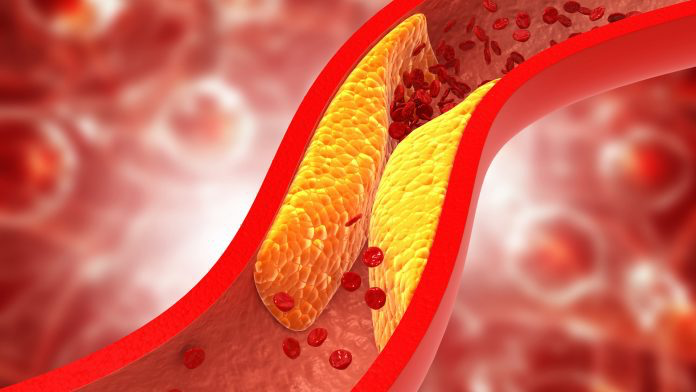
This is when plaque builds up in the arteries (not good)
Unsubscribe | Report as spam | Change email preferences
These 3 things make atherosclerosis more common
Atherosclerosis is a condition in which plaque (junk) builds up in your arteries.
Plaque hardens and blocks your arteries.
Which prevents your body from carrying nutrient-rich blood to your organs.
This is detrimental because every part of your body needs those nutrients – without them, they can’t work properly.
Think about what happens “down there” with blocked-up arteries… (disaster)
If this condition progresses and your vital organs start to lose blood supply, things can get out of hand – it can lead to much severe problems.
Current data suggest men are more prone to atherosclerosis than women.
But don’t worry – I’m here daily to show you peer-reviewed studies explaining how to prevent such conditions.
Today’s study sheds light on why atherosclerosis occurs.
Rest assured, you won’t hear this information from the mainstream medical environment…
This study was conducted at Kursk State Medical University. It was published in Kardiologiia.
The researchers have studied many people with atherosclerosis in detail with hormonal, blood, physical, and many other tests.
“A comparative study of the heart phasic pattern was carried out using phlebo-, sphygmo- and kinetocardiography in male patients with chronic nonspecific pulmonary disease and the chronic pulmonary heart syndrome with or without atherosclerosis.”
The results could shake up (probably unsurprising to you) today’s doctor recommendations.
According to their findings, atherosclerosis is strongly associated with
- High Cortisol
- High Estrogen
- High Serotonin
- High Adrenaline
- Low Androgens
“Atherosclerosis in patients with chronic nonspecific pulmonary disease was shown to be accompanied by high pulmonary hypertension and feature corticosteronemia, hyperestrogenemia, androgen (testosterone) deficiency and increased production of serotonin and noradrenaline.”
I have often highlighted the problems associated with serotonin, estrogen, and cortisol in my previous newsletters.
It is CRUCIAL for men to have low levels of these hormones while maintaining high androgens.
This type of hormonal status is linked not only to atherosclerosis but also to several other health conditions.
In the abundance of SSRIs, xenoestrogens, and environmental stressors, it is crucial to be informed and make lifestyle choices accordingly.
Here are a couple of recommendations on how you can do that:
To reduce estrogen, you can
- Use aromatase inhibitors such as Vitamin K, E, and Vitamin B6.
- Reduce exposure to xenoestrogens like commercial detergents, cosmetic products, and pesticide-laden foods.
To reduce cortisol levels, you can
- Eliminate potential stressors from your life
- Eat enough calories and carbohydrates (sugars)
- Get plenty of sleep and sunshine
- Use magnesium
- Try phosphatidylserine (this is a strong cortisol blocker but might come with side-effects)
To reduce serotonin, you can
- Limit gut-irritating foods (they increase serotonin)
- Use serotonin-blocking treatments such as cyproheptadine
- Increase dopamine which is antagonistic to serotonin
To Increase Androgens, you can
- Prioritize nutritious foods such as dairy, meat, fruits, and tubers.
- Get plenty of sunshine and sleep
- Try testosterone booster supplements
Of course, these are broad recommendations; I won’t explain them in detail because they are not the subject today.
For details, I recommend you to take a look at my previous articles because I have given specific recommendations about all of them.
—-Important Message About Raising Progesterone—-
How to use progesterone for better rockiness
I’ve come up with a special new protocol that focuses on progesterone and 2 other key supplements…
And these 3 supplements lower harmful prolactin, they lower estrogen, and they raise testosterone.
And that’s exactly what men need to enjoy good, strong erections whenever they want.
One of these 3 supplements is progesterone — and here are the other 2, with instructions on how to use them safely and effectively
———-




